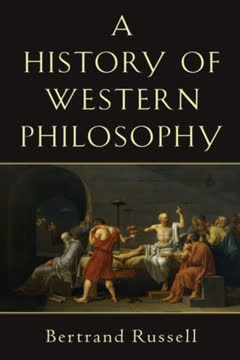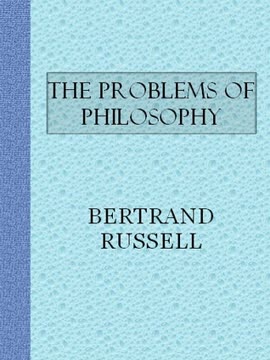نکات کلیدی
1. پذیرش جستجوی خوشبختی به عنوان یک تلاش ارزشمند
خوشبختی قابل دستیابی است. با وجود چالشهای زندگی مدرن، خوشبختی مفهومی نیست که تنها برای عدهای خاص و خوششانس محفوظ باشد. این یک حالت وجودی است که میتوان آن را از طریق تلاش آگاهانه و خوداندیشی پرورش داد. با درک علل نارضایتی و کار فعال برای رفع آنها، افراد میتوانند کیفیت زندگی خود را به طور قابل توجهی بهبود بخشند.
غلبه بر موانع ذهنی. بسیاری از افراد بهطور ناخودآگاه خوشبختی خود را از طریق الگوهای فکری منفی، نگرانیهای بیش از حد و تمرکز نادرست تخریب میکنند. با شناسایی این تلههای ذهنی و اتخاذ یک دیدگاه متعادلتر، میتوان به سمت نگرش مثبتتری حرکت کرد. این شامل:
- به چالش کشیدن باورهای خودتخریبی
- تمرین قدردانی از لذتهای ساده زندگی
- توسعه تابآوری در برابر سختیها
- پرورش روابط و فعالیتهای معنادار
2. پرورش شوق به زندگی از طریق علایق و تجربیات متنوع
پذیرش تنوع زندگی. شوق به زندگی یکی از اجزای کلیدی خوشبختی است که با اشتیاق، کنجکاوی و درگیری با دنیای اطراف ما مشخص میشود. با جستجوی فعالانه تجربیات و علایق جدید، میتوانیم حس شگفتی و هیجان را در طول زندگی خود حفظ کنیم.
گسترش افقها. برای پرورش شوق:
- به دنبال سرگرمیها و علایق متنوع باشید
- در یادگیری مادامالعمر شرکت کنید
- سفر کنید و فرهنگهای مختلف را کشف کنید
- خود را با مهارتها یا فعالیتهای جدید به چالش بکشید
- ذهن خود را به دیدگاههای مختلف باز نگه دارید
با گسترش تجربیات و علایق خود، یک بافت غنی از زندگی ایجاد میکنیم که میتواند ما را در زمانهای دشوار حمایت کند و منابع مداوم شادی و رضایت را فراهم آورد.
3. توسعه محبت و روابط سالم برای مقابله با تنهایی
قدرت ارتباط. روابط سالم و محبت برای خوشبختی انسانها اساسی هستند. آنها حمایت عاطفی، حس تعلق و فرصتهای رشد شخصی را فراهم میکنند. توسعه و حفظ این ارتباطات نیاز به تلاش و درک دارد.
ساختن پیوندهای معنادار. برای پرورش روابط سالم:
- بهطور فعال گوش دهید و همدلی کنید
- قدردانی کنید و سپاسگزاری را ابراز کنید
- آسیبپذیر و واقعی باشید
- به مرزها و تفاوتهای فردی احترام بگذارید
- زمان و انرژی خود را برای پرورش ارتباطات سرمایهگذاری کنید
با پرورش یک شبکه از روابط حمایتی، یک سپر در برابر تنهایی و انزوا ایجاد میکنیم که از عوامل مهم نارضایتی در جامعه مدرن است.
4. یافتن رضایت در کار معنادار و فعالیتهای سازنده
هدف از طریق تولید. درگیر شدن در کار معنادار و فعالیتهای سازنده حس هدف، دستاورد و ارزش خود را فراهم میکند. این فراتر از اشتغال پرداختی است و شامل داوطلبی، تلاشهای خلاقانه و پروژههای شخصی میشود.
پرورش رضایت. برای یافتن رضایت در کار و فعالیتها:
- علایق و نقاط قوت خود را شناسایی کنید
- اهداف چالشبرانگیز اما قابل دستیابی تعیین کنید
- به دنبال فرصتهای رشد و یادگیری باشید
- به چیزی بزرگتر از خودتان کمک کنید
- کار را با سایر جنبههای زندگی متعادل کنید
با یافتن رضایت در فعالیتهای روزمره و تلاشهای بلندمدت، حس هدفی ایجاد میکنیم که به طور قابل توجهی به خوشبختی و رفاه کلی ما کمک میکند.
5. تعادل بین رقابت و همکاری برای رضایت بیشتر
هماهنگی به جای رقابت. در حالی که رقابت میتواند نیروی محرکهای برای دستیابی باشد، تمرکز بیش از حد بر برتری بر دیگران میتواند منجر به استرس، اضطراب و نارضایتی شود. تعادل بین غرایز رقابتی و همکاری و حمایت متقابل، مسیر پایدارتری به سوی خوشبختی ایجاد میکند.
پرورش همکاری. برای دستیابی به این تعادل:
- موفقیتهای دیگران را به همان اندازه که موفقیتهای خود را جشن میگیرید، جشن بگیرید
- بر رشد شخصی به جای مقایسه تمرکز کنید
- در تعارضات به دنبال راهحلهای برد-برد باشید
- در فعالیتهای تیمی و پروژههای مشترک شرکت کنید
- همدلی کنید و دیدگاههای دیگران را در نظر بگیرید
با تغییر از یک ذهنیت صرفاً رقابتی به ذهنیتی که همکاری و موفقیت مشترک را ارزشمند میداند، میتوانیم روابطی پربارتر و حس جامعهای بزرگتر ایجاد کنیم.
6. غلبه بر سلطه نظر عمومی و انتظارات اجتماعی
آزادی از فشار اجتماعی. ترس از نظر عمومی و وزن انتظارات اجتماعی میتواند موانع قابل توجهی برای خوشبختی شخصی باشد. یادگیری زندگی بهطور اصیل، مطابق با ارزشها و آرزوهای خود، برای رضایت طولانیمدت ضروری است.
پذیرش فردیت. برای غلبه بر سلطه نظر عمومی:
- معیارهای خود را برای موفقیت و خوشبختی تعریف کنید
- خودپذیری و خودشفقتی را تمرین کنید
- خود را در میان افراد حمایتی و همفکر قرار دهید
- یاد بگیرید که به تعهداتی که با ارزشهایتان همخوانی ندارند، نه بگویید
- اعتماد به نفس و خودباوری درونی را پرورش دهید
با آزاد کردن خود از نیاز مداوم به تأیید خارجی، فضایی برای ابراز واقعی خود و رشد شخصی ایجاد میکنیم.
7. پرورش علایق غیرشخصی برای دیدگاه و تابآوری
گسترش افقها. پرورش علایق فراتر از نگرانیهای شخصی ما، دیدگاه و تابآوری عاطفی ارزشمندی فراهم میکند. این علایق غیرشخصی میتوانند در زمانهای دشوار پناهگاهی باشند و تجربه کلی زندگی ما را غنیتر کنند.
گسترش دنیای خود. برای توسعه علایق غیرشخصی:
- موضوعات خارج از حوزه حرفهای خود را کشف کنید
- با هنر، ادبیات و فرهنگ درگیر شوید
- تاریخ یا کشفیات علمی را مطالعه کنید
- رویدادهای جهانی و فرهنگهای مختلف را دنبال کنید
- به سرگرمیهایی بپردازید که به کار یا زندگی شخصی شما مربوط نیست
با پرورش این علایق گستردهتر، دیدگاه متعادلتری از جایگاه خود در جهان به دست میآوریم و منابع ذهنی را توسعه میدهیم که میتواند ما را در چالشهای شخصی حمایت کند.
8. ایجاد تعادل بین تلاش و تسلیم در چالشهای زندگی
حکمت در میانهروی. یافتن تعادل مناسب بین تلاش فعال برای تغییر شرایط و پذیرش آنچه نمیتوان تغییر داد، برای حفظ سلامت روان و خوشبختی ضروری است. این تعادل به ما اجازه میدهد تا باGrace و تابآوری به چالشهای زندگی بپردازیم.
پرورش تعادل. برای دستیابی به این تعادل:
- وضعیتها را بهطور واقعبینانه ارزیابی کنید تا تعیین کنید چه چیزی قابل تغییر و چه چیزی غیرقابل تغییر است
- در مورد چیزهایی که تحت کنترل شما هستند، اقدام کنید
- برای شرایطی که فراتر از تأثیر شماست، پذیرش را تمرین کنید
- استراتژیهای مقابله با ناامیدی و ناامیدی را توسعه دهید
- صبر و دیدگاه بلندمدت را پرورش دهید
با ایجاد این تعادل، میتوانیم از افراط در تلاش بیفایده در برابر موانع غیرقابل حرکت و تسلیم منفعلانه در برابر شرایط قابل تغییر، اجتناب کنیم و به رویکردی متعادلتر و راضیکنندهتر در چالشهای زندگی دست یابیم.
آخرین بهروزرسانی::
FAQ
What's "The Conquest of Happiness" about?
- Exploration of Happiness: "The Conquest of Happiness" by Bertrand Russell explores the causes of happiness and unhappiness in modern life.
- Practical Philosophy: The book offers practical advice on how to achieve happiness by addressing both external circumstances and internal psychological states.
- Two-Part Structure: It is divided into two parts: the first examines causes of unhappiness, and the second explores causes of happiness.
- Common Sense Approach: Russell uses a common-sense approach to discuss how individuals can overcome personal and societal obstacles to happiness.
Why should I read "The Conquest of Happiness"?
- Timeless Wisdom: Despite being published in 1930, the book's insights into human nature and happiness remain relevant today.
- Practical Advice: Russell provides practical strategies for overcoming unhappiness and cultivating a fulfilling life.
- Philosophical Insight: The book offers philosophical reflections that encourage readers to think deeply about their own lives and values.
- Empowerment: It empowers readers to take control of their happiness by understanding and addressing the root causes of their discontent.
What are the key takeaways of "The Conquest of Happiness"?
- Self-Centeredness Causes Unhappiness: Russell argues that self-centered passions like fear, envy, and self-pity are major sources of unhappiness.
- Importance of External Interests: Cultivating interests outside oneself is crucial for achieving happiness and avoiding boredom.
- Balance of Effort and Resignation: Happiness requires a balance between making efforts to improve one's life and accepting what cannot be changed.
- Role of Affection: Feeling loved and giving love are essential components of a happy life.
How does Bertrand Russell define happiness in "The Conquest of Happiness"?
- Objective Living: Happiness is living objectively with free affections and wide interests.
- Integration with the World: A happy person feels integrated with the world and not isolated by self-centered concerns.
- Freedom from Fear: Overcoming fear and self-deception is crucial for achieving happiness.
- Joy in Simple Pleasures: Happiness often comes from simple pleasures and a zest for life.
What are the causes of unhappiness according to "The Conquest of Happiness"?
- Self-Absorption: Russell identifies self-centered passions like fear, envy, and self-pity as primary causes of unhappiness.
- Social and Psychological Pressures: Modern societal pressures and psychological maladjustments contribute to feelings of discontent.
- Lack of External Interests: A lack of interests outside oneself leads to boredom and dissatisfaction.
- Unrealistic Expectations: Unrealistic expectations and the inability to accept life's imperfections can lead to chronic unhappiness.
What are the causes of happiness according to "The Conquest of Happiness"?
- Zest for Life: A genuine interest in life and its experiences is a key component of happiness.
- Affection and Love: Receiving and giving affection are fundamental to a happy life.
- Constructive Work: Engaging in work that is meaningful and constructive contributes to happiness.
- Impersonal Interests: Developing interests that are not tied to personal gain helps maintain a balanced and happy life.
What is Bertrand Russell's advice on overcoming fear in "The Conquest of Happiness"?
- Face Fears Rationally: Russell advises confronting fears rationally and calmly to diminish their power.
- Daily Truths: He suggests admitting at least one painful truth daily to build courage.
- Broaden Perspectives: Expanding one's view of life and the universe can help reduce personal fears.
- Cultivate Courage: Practicing courage in small ways can build resilience against larger fears.
How does "The Conquest of Happiness" address the role of work in achieving happiness?
- Prevents Boredom: Work provides structure and prevents the boredom that comes from idleness.
- Opportunities for Success: It offers chances for success and ambition, which are important for self-esteem.
- Constructive Satisfaction: Engaging in work that is constructive and meaningful can lead to profound satisfaction.
- Balance with Leisure: A balance between work and leisure is essential for maintaining happiness.
What does Bertrand Russell say about the importance of affection in "The Conquest of Happiness"?
- Security and Confidence: Affection provides a sense of security and confidence, essential for a happy life.
- Reciprocal Affection: Genuine happiness comes from reciprocal affection, where both parties give and receive love.
- Beyond Possessiveness: True affection is not possessive but respects the individuality of the other person.
- Foundation of Relationships: Affection is the foundation of meaningful relationships and personal fulfillment.
What are the best quotes from "The Conquest of Happiness" and what do they mean?
- "The secret of happiness is this: let your interests be as wide as possible, and let your reactions to the things and persons that interest you be as far as possible friendly rather than hostile." This quote emphasizes the importance of broad interests and a positive attitude towards life.
- "The happy man is the man who lives objectively, who has free affections and wide interests, who secures his happiness through these interests and affections." It highlights the idea that happiness comes from living beyond oneself and engaging with the world.
- "To be without some of the things you want is an indispensable part of happiness." This suggests that the pursuit of desires, rather than their fulfillment, is what brings joy.
- "The man who suffers from a sense of sin is suffering from a particular kind of self-love." This quote critiques the self-centered nature of guilt and the importance of overcoming it for happiness.
How does "The Conquest of Happiness" suggest dealing with envy?
- Recognize Envy's Futility: Russell advises recognizing that envy is a futile emotion that detracts from personal happiness.
- Focus on Personal Joys: Concentrating on one's own pleasures and achievements can help diminish feelings of envy.
- Avoid Comparisons: He suggests avoiding unnecessary comparisons with others, which often fuel envy.
- Cultivate Admiration: Developing admiration for others' successes rather than envy can lead to a more positive outlook.
What is the significance of "zest" in "The Conquest of Happiness"?
- Essential for Happiness: Zest, or a keen interest in life, is identified as a crucial element of happiness.
- Variety of Experiences: It involves finding joy in a variety of experiences and maintaining a sense of wonder.
- Counteracts Boredom: Zest helps counteract boredom and makes life more fulfilling.
- Energy and Enthusiasm: It is associated with energy and enthusiasm, which are vital for a happy and engaged life.
نقد و بررسی
کتاب فتح شادی عمدتاً نقدهای مثبتی دریافت کرده و به خاطر حکمت عملی و بینشهای جاودانهاش در مورد طبیعت انسانی ستایش میشود. خوانندگان از سبک نوشتاری واضح راسل و توانایی او در پرداختن به علل رایج نارضایتی و پیشنهاد راههایی برای پرورش شادی قدردانی میکنند. برخی نظرات قدیمی او در مورد جنسیت و طبقه اجتماعی را مورد انتقاد قرار میدهند، اما بسیاری پیام اصلی کتاب را همچنان مرتبط میدانند. این کتاب بهعنوان یک کاوش فلسفی در مورد شادی تلقی میشود تا یک راهنمای خودیاری، و رویکردی منطقی برای زندگیای پربار ارائه میدهد.
Similar Books

















